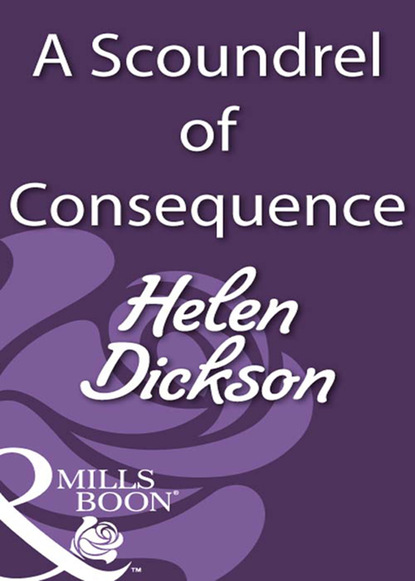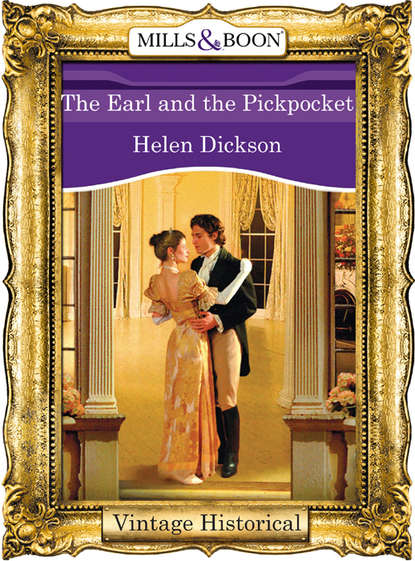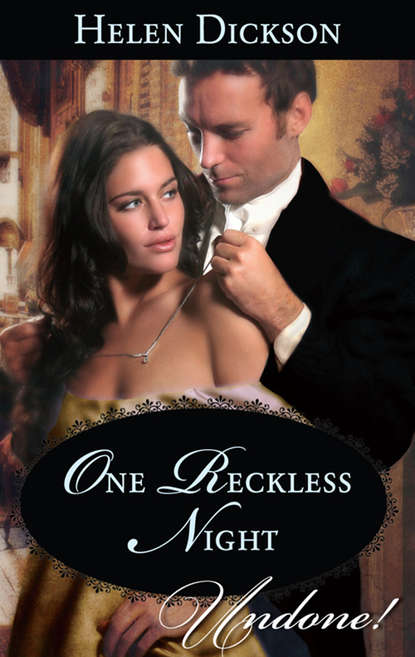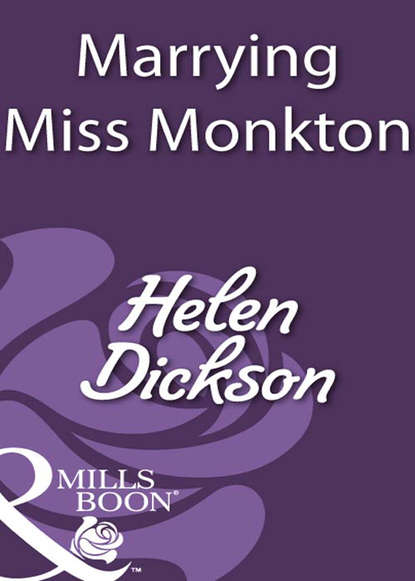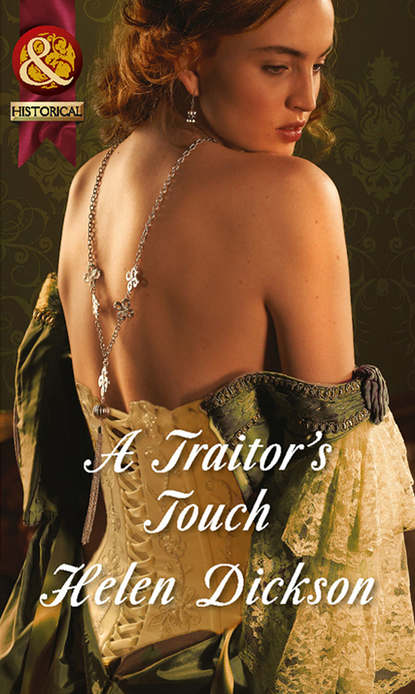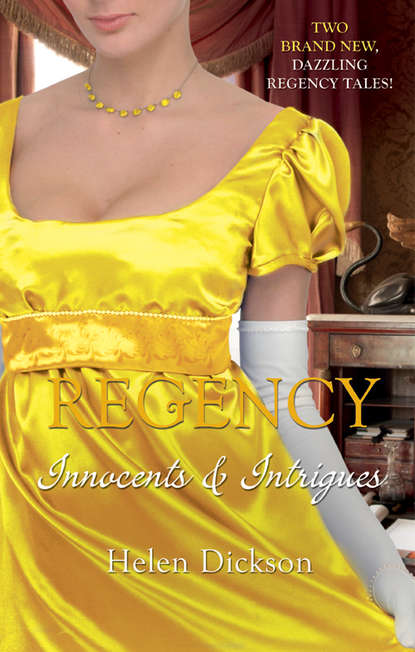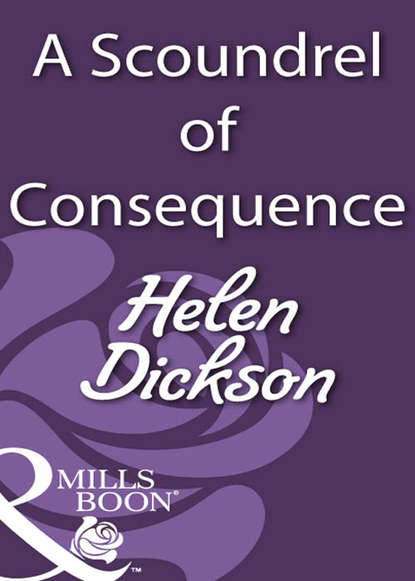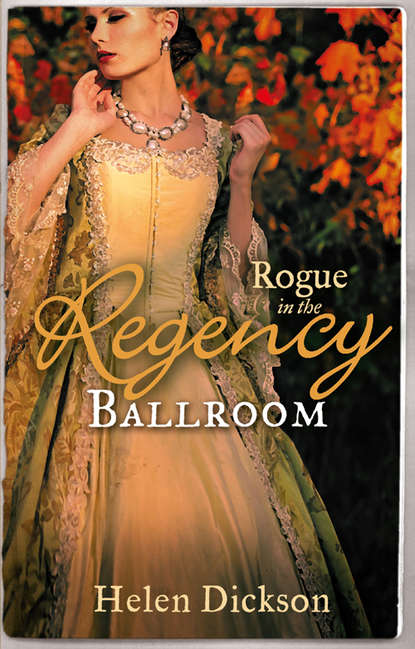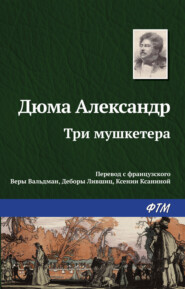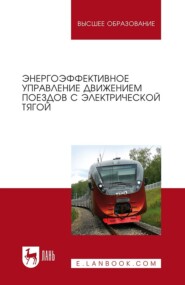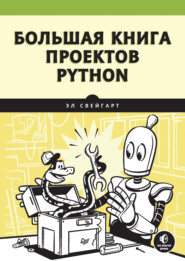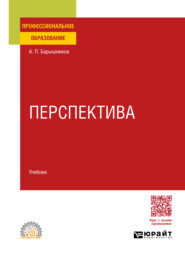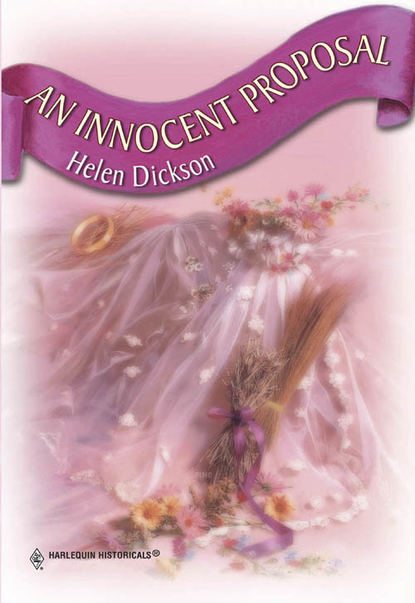 Текст
Текст An Innocent Proposal
Полная версия
- О книге
- Читать
Louisa stared around in fascination, feeling as if she had suddenly stepped into a dangerous, unrecognisable world, never having seen anything quite so bizarre as what she now saw. At any other time she would have been impressed by the sumptuous surroundings, had her whole being not been concentrated on finding her brother.
Quietly and firmly she excused herself to her companion and moved away, not wishing to draw undue attention to herself—which was no easy matter for she was exquisitely attractive, a figure of elegance, one who instinctively drew a second, lingering glance. There was not a thing she could do about it, for it was innate in her—like drawing breath. She was unaware that in her plain gown, with no ornamentation other than a fine lace edging around the modestly cut neckline, she was scintillating, and was far more alluring than if she had been adorned from head to toe in jewels.
Unaware of the continued attention of her escort as his eyes followed her with a determined, interested gleam, she mingled with the crowd of people, taking a proffered glass of champagne from a silver tray being carried among the guests by a splendidly attired footman. She had no liking for liquor of any kind and did not intend to drink it, but knew she would be less likely to draw attention to herself with a glass in her hand and looking as though she was enjoying herself.
As she moved among the people gathered in groups, some standing, others lounging indolently on gilt sofas and chairs, and with every face flushed to all shades of crimson, she tried not to appear shocked at finding herself in such a place, deliberately not looking too closely at what was going on. But while the moralist in her disapproved of this kind of behaviour her rebellious Bohemian instinct secretly admired it.
The room was hot, crowded and noisy. The men were dressed in elegant frock coats, and some wore powdered wigs, and their cravats were becoming limp and their clothes soiled with food and drink.
But the men were outshone by the ladies, who were painted and powdered saucy creatures—a languid bevy of scented, fan-waving beauties of the demi-monde—with not very respectable origins, but holding great fascination. They hung onto the gentlemen’s arms, and were devoured by them with hungry eyes as they flaunted and flirted with them outrageously. They were dressed in gaudy, disgracefully low-cut gowns, and were drunk on champagne and behaving in a manner which Louisa could not pretend to, making her blush and look away. No doubt they would become more loud and vulgar as the night wore on, she thought.
Managing to avoid the groping hands of some of the gentlemen who reached out as she passed, and ignoring their lewd suggestions and exaggerated winks, she was beginning to wish she had not come. But then she remembered the purpose of her being there, of Bierlow Hall, her wonderful home in Surrey, impoverished though it was, and that James, being a man of expensive tastes, in his reckless desperation to improve their lot, was in danger of gambling it all away. She had come to London two months ago to beg him to abandon his dissolute way of life and return with her to Bierlow. He had done so, but he had not stayed much longer than four weeks before he had become bored and returned to London.
Louisa’s resolve to find him before it was too late sent her towards a room where several card tables had been set up, knowing she would find her brother there.
Here the noise was curiously muted so as not to distract the players. Small tables for dice, whist, French hazard and other games that took the guests’ fancy had been set up. Louisa’s eyes scanned the groups of people clustered around them, where several games were in progress. The players were obscured from view but on seeing the tall figure of Timothy Hacket standing in a small group she moved towards him.
Timothy turned when he felt her press herself against him, his face registering shocked surprise when he recognised her. He immediately took her arm and drew her away, but not before she had seen her brother sitting at the table, his body taut, and a wild, concentrated gleam in his eyes which only gamblers had when, intent on winning, they saw nothing except the cards in front of them.
“Good Lord, Louisa! What are you doing here? I thought James had left you at Bierlow?”
“He did, but after he left for London four weeks ago…I discovered just the other day that the only valuables remaining in the house had disappeared, and I knew James must have taken them, and exactly what he intended doing with them—that he would sell them in order to pay for his gambling. I had to come.”
“He will be outraged if he sees you—here of all places. It is hardly the kind of establishment where he would care to see his sister.”
“I do not care, Timothy. I am well aware that if I had a place in society I would be disgraced for all time—but with so much at stake the ethics of the matter do not concern me. Our situation is desperate, you know that. James must be made to stop before it is too late and we have nothing left to sell or gamble but the estate—such as it is.”
“I know that, but he is determined. He will not be stopped.”
“Have you tried?”
“Yes, but you know what James is like when he has his head set. He will not listen.”
“Then I shall speak to him. He must listen to me,” Louisa said in desperation, making a move towards the table.
“Wait, Louisa,” Timothy said, putting a restraining hand gently on her arm. “Leave him. It may surprise you to know that James is winning. He will not thank you for interfering.”
“Winning?” Louisa exclaimed in surprise, staring up at her brother’s long-time friend. “By how much?”
“Fifteen thousand guineas.”
Louisa gasped, astonishment mingled with relief flooding over her, unable to believe what she was hearing, her mind already racing as she calculated what could be done at Bierlow Hall with such an enormous amount of money.
“Then before he begins to lose, please tell him to stop now.”
Timothy sighed. “I will try, but I know he will refuse. I’ve seen him in this mood before when he thinks everything is going his way—and I have to tell you that the liquor he has consumed has increased his habitual readiness to take risks to a point of madness.”
About to move away, Timothy looked sideways sharply when a man moving close to Louisa caught his attention. She acknowledged the man with a faint smile and a nod, which gave him the feeling that they had already met. It was Sir Charles Meredith, a notorious rake and debauchee of the worst possible kind, and Timothy did not like the way he clung to Louisa’s side, watching her, speculative and predatory.
But Louisa had already forgotten Sir Charles Meredith, and she felt her heart lurch to a sickening degree as she watched the group part to let Timothy through, seeing once more her brother’s flushed, handsome countenance and his sleek, ash-blond hair falling untidily over his brow. There was a glazed set to his features and a grimness in his eyes.
Through the gap James looked blindly in her direction, his eyes registering surprise when they focused on her presence and her worried amber eyes. Anger flared in his own and his full lower lip curled with disapproval, but he refused to allow himself to become sidetracked from the game in hand by an angry sister, who should have known better than to follow him to London. He brushed Timothy aside when he bent and whispered in his ear, refusing to listen, uttering disappointment when his partner rose from the table, having lost the game and reluctant to play on.
Louisa was swamped with relief, sure that he would finish now and come away. But another man came and sat opposite James, cutting one of two packs of cards on the table with slender, flexible fingers as they prepared to begin a game of piquet. It was a game for two people which offered excellent scope for both intelligence and judgement, something which James would have risen to had his head not been fogged with the fumes of alcohol.
Louisa’s eye was caught by a woman coming to stand behind James’s opponent, a bold woman with a handsome face, stunning in a purple and mauve gown cut so low as to leave little to the imagination. Her hair was red, too red to be real, and in response to her whispered question Timothy told her it was none other than their hostess, Lady Bricknell. The flamboyance in her attire and jewels showed that she had been left well provided for by her departed husband.
Curious now she was seeing the notorious Lady Bricknell in the flesh, and recollecting the reputation she had acquired over the years, Louisa found herself staring at her; despite having a taste for the theatrical which verged on the vulgar, Lady Bricknell was a desirable asset to London’s social scene—a woman who lived for pleasure, and a woman of taste and wit who was prized as much for her company as her beauty and flaming red hair.
Seeing that both men were so intent on the game and each other that they barely glanced at the small crowd gathered around the table, with a charming smile on her crimson painted lips, Lady Bricknell moved away to pay attention to her other guests, but Louisa sensed by the way she gently squeezed the gentleman’s shoulder with bejewelled fingers, before drifting away, that their relationship went way beyond that of mere acquaintance.
The game followed the classic pattern with James winning a little, then losing more and more, until he ceased to win anything at all as his partner, who, unlike James, was completely unaffected by alcohol, raised the stakes higher and higher. With a mixture of languor and self-assurance, his eyes on the cards did not stir.
Louisa watched with the sickening knowledge that because of James’s reckless stupidity they were about to lose everything they owned.
“Dear Lord,” said Timothy quietly, careful not to let Sir Charles, who had not relinquished his stance beside Louisa, overhear—although, like every other spectator, Sir Charles’s attention had become taken up with the game. “’Tis sinful the way James loses money.”
“Sinful? This whole house reeks of sin, Timothy, and it is sinful of James to gamble away what little we have left. No doubt he will blame me for changing his luck,” she whispered to Timothy, who was looking on with deep concern.
“If he loses it cannot be blamed on you. Not when he is playing Lord Dunstan.”
Louisa glanced at him. “Lord Dunstan? Who is he? I cannot say that I have ever heard of him.”
“Perhaps that’s because he doesn’t often come into society. He is extremely skilful at cards and a great number of people have lost whole fortunes to him. His personality is so strong that with a lift of one of his arrogant eyebrows, or a flare of a nostril, it is not unknown for his opponent to tremble with fear and drop his cards. He is hard and ruthless and enjoys winning at any form of gambling—and cares little for those who suffer as a consequence.”
“Why is he so unpleasant?”
“It isn’t that he’s unpleasant. In fact, he can be quite charming, especially to the ladies, who fair drool over him—and it’s not difficult to see why with his looks. It’s the way he rides roughshod over everything and everybody that puts people’s backs up.”
“He sounds positively horrid,” said Louisa.
“Lord Dunstan can afford to be anything he wants to be. He is immensely rich and extremely important. His estate in Sussex is fabulous and his stable envied by all.”
Louisa sighed. “Poor James. He doesn’t stand a chance of winning against such a man.”
She looked at the aforesaid gentleman properly for the first time, recognising authority when she met it. Then she frowned, for there was a faint glimmer of familiarity to his features, but she could not for the life of her think where she could have seen him before. Excitement that was due as much to his appearance than anything else swept over her. Although he was seated, she could tell he was extremely tall, with powerful shoulders and long muscular legs. Unlike the other gentlemen, who were dressed like peacocks in a multitude of the customary bright colours, he was clad in jet-black, with the exception of his snowy white shirt and cravat, which gleamed in stark contrast to his black suit and silk waistcoat.
He wore no wig, and his own hair was thick and deep brown, with, Louisa suspected, a tendency to curl. It was smoothly brushed back from his wide brow and fastened at the nape of his neck. There was a strong, arrogant set to his jaw and his face was as hard and forbidding as a granite sculpture, his fingers handling the cards with expert ease long and slender. In fact, everything about him exuded brute strength and arrogant handsomeness.
He was the kind of man who was capable of silencing a room full of people just by appearing in the doorway—whose attitude was that of a man who knew his own worth.
She didn’t realise she was staring at him until his instinct made him look up, as if sensing her gaze, and Louisa felt her breath catch in her throat when his eyes locked onto hers, compelling and piercing, and the most startling shade of blue. In fact, they stirred some vague memory and it bothered her, for she was convinced she had seen eyes that colour once before, but where? His dark brows lifted a fraction in bland enquiry at her gaze and he appeared to look her over in a hard, contemplative way, smiling ever so slightly in an appraising manner when he seemed to like what he saw, bringing a crimson flush to her cheeks.
Suddenly his gaze was arrested by the sight of her companion, Sir Charles Meredith, and Louisa saw a tightening to his features as his eyes narrowed and swept over the other man like a whiplash. The look that passed between them crackled with hidden fire, and for just a moment she saw something savage and raw stir in the depths of Lord Dunstan’s eyes, before they became icy with contempt.
Looking up at Sir Charles, she saw his lips curl with something akin to sly amusement mingled with hatred, and he nodded ever so slightly in acknowledgement, which Lord Dunstan did not deign to return. Undeterred, Sir Charles casually took out an elegant ornamented silver snuff box and took snuff, delicately touching his nostrils with a lace handkerchief before smiling down at Louisa’s upturned face and charmingly excusing himself before moving away.
Louisa was puzzled by the incident, curious as to what had induced this unconcealed dislike between the two gentlemen, but she was more puzzled by the fact that she remembered Lord Dunstan’s face but could not quite place it. Her mind raced through the places she had been where she might have seen him, but in the end she gave up, which was odd, because it would not be easy to forget the startling directness of those vivid blue eyes.
For the next half-hour Louisa watched every move of the game with a sinking heart, the tension becoming unbearable as James lost more and more of his winnings to Lord Dunstan, who presided over the game like a predatory hawk. Her anger was growing by the second but she tried not to show it, attempting to maintain a façade of disinterest and indifference. She tried to look as relaxed as the other women and to pretend to be one of them, pinning an artificial smile to her face when a florid-faced gentleman next to her complimented her on her beauty, and moving closer to Timothy with an intimacy which told the gentleman she was not available.
Fixing her attention once more on the game, she saw that Lord Dunstan was experienced, and that the more James lost, the more Lord Dunstan incited him to go on playing, to bid higher and higher. He must have been able to see James was drunk and not in possession of his right senses. He would have had to be blind not to, but he lounged indifferently across from him, his expression bland as he coolly regarded her brother, whose flushed face and nervousness clearly betrayed his emotions.
When James had lost his former winnings, pushing a pile of banknotes into the centre of the table, Lord Dunstan raised the stake yet again by one thousand guineas, and Louisa could not believe it when James, in an agitated state, accepted the bet, knowing all he had left to stake were the deeds of Bierlow Hall.
No longer able to stand by and watch his friend lose every penny to his name, Timothy stepped forward.
“Don’t be a fool, James,” he told him. “You cannot cover the bet if you lose. After losing what you have won tonight, you no longer have one thousand guineas to your name.”
Impatient at being interrupted, James shot him a look which told him not to interfere as he put his signature to a chit and placed it with Lord Dunstan’s money in the centre of the table. “There you are mistaken. I can afford it. I will take the bet, and I aim to win it back on the next hand.”
Lord Dunstan seemed irritated by the interruption, noticing James’s slight hesitation. “Do you continue?” he asked curtly.
“I continue,” James replied firmly.
Louisa flinched, trying not to look at Lord Dunstan’s glacial expression, making up her mind there and then that the man was despicable, but her anger was also directed at James. How could he go on playing, gambling away everything they owned? Their father would be horrified—although if he had not invested his money so badly when he had been alive, she and James would not be in the position they were in now. Their father had been too interested in his horses and his dogs, paying little interest to what was happening in the financial world until it was too late to do anything about it.
At twenty years old Louisa was younger than James by two years, but she had always been the sensible, practical one, while James was somewhat reckless and foolhardy and liked to live life to the full and in comfort. She had tried to guide and protect him since the death of their father four years ago, and would have dearly liked him to buy a commission in their father’s old regiment, but they could not afford it. However, with Britain now at war with France, at least she could take comfort in his not being killed on some far-off battlefield.
But James was not entirely selfish, believing that once he had established himself a fortune he would bring Louisa to London, where he would set about finding her a suitable husband.
Louisa turned and left the table just as the last hand was being played, no longer able to watch James lose all the money he had won earlier. No doubt four thousand guineas was a modest sum to Lord Dunstan, whereas to herself and James it was a fortune. Not until the game was over did she turn back to see Lord Dunstan rise from the table.
“Thank you. That was an excellent game,” he said as James quickly signed an IOU for the four thousand guineas he owed. James handed it to him and watched Lord Dunstan pocket it before slumping in his chair with the knowledge that he would have to face the enormity of his loss and his sister.
For the first time a thin smile curled Lord Dunstan’s lips, his eyes showing contempt for his victim, utterly unconcerned for the pain he knew he must be feeling, and knowing that in situations such as this it was not uncommon for a man who had staked his entire fortune on a game of cards to go out and shoot himself.
“Rotten luck,” Lord Dunstan said calmly, his voice of a rich, deep timbre, “but that’s how it goes. I think refreshment would be in order now, don’t you? Come, Fraser, what do you say?”
Trying to maintain some semblance of dignity, James rose. “Yes, of course. Please—excuse me a moment,” he said, moving to where Louisa was standing with Timothy, feeling so utterly wretched and miserable that he had forgotten his earlier outrage her presence had caused him, and that normally he would have chastised her most severely for daring to set foot inside such an establishment as this and ordered her home at once.
Lord Dunstan followed him.
“If you wish to try to recoup your losses and exact your revenge, I will give you the opportunity of doing so. Please accept my invitation to Dunstan House on Thursday night. You and Mr Hacket will be more than welcome,” he said, his gaze including Timothy, “and might I suggest you bring your lady friend? The company will be mixed,” he added, his eyes flicking over Louisa without the slightest acknowledgement, which set her blood boiling. She was insulted that he thought her of so little consequence that he had no interest in being properly introduced, which courtesy and good manners demanded when one addressed even the meanest of women. The man was truly a monster.
“Yes, of course. Thank you,” said James, unaware of the murderous look his sister was giving him.
“Oh, but you can’t,” Louisa burst out suddenly, causing James to turn and gape at her in angry surprise, and with a presence of mind she didn’t know she possessed she smiled brightly at all three, using all her feminine wiles as she leaned towards James, coquettish and enticing, and spoke in a flirtatious tone while focusing the full force of her dazzling amber gaze and bewitching smile on her brother with merry defiance. “You are already promised to me that evening, James. You promised to take me to the pleasure gardens across the river, if you remember.”
“I did no such thing,” James said indignantly, giving her an angry, censorious look which she ignored, determined to keep him away from Lord Dunstan and his card games at all costs.
“Yes, you did,” she argued gently. Normally she would not have dared to be so bold or so outspoken, but anger gave her the courage to refuse to feel intimidated by this arrogant, despicable man. Linking her arm possessively through James’s, she gazed up at him languidly from under her thick lashes. “I shall be mortified if you disappoint me and break your word. I am so looking forward to it, as well you know. After neglecting me so abominably all evening, I will not allow you to push me aside yet again for a game of cards which, I observed, you do not seem to possess a talent for and which I consider in such cases is best left alone.”
James was clearly furious, finding his sister making up to him as though she were his doxy quite shocking. He was at a loss to know what to say or how to deal with the situation, and before he could say anything Lord Dunstan had fixed his gaze on Louisa, trying hard to decide if she was genuine in her claim that Fraser had promised to take her to the pleasure gardens or a gifted diplomat.
“One can visit the pleasure gardens any evening, Miss—?”
“Divine,” Louisa said hurriedly, drenching him in her most charming smile, without thinking of the consequences of her fabrication or the connotations of the name she had chosen at random.
“Miss Divine,” he went on, with a slight lift to his sleek eyebrows, his hard face wiped clean of all expression, except for a faint smile in which Louisa caught a glimpse of dazzling white teeth, “whereas invitations to Dunstan House are seldom given and, if they are, are not issued lightly.” He fixed his gaze once more on James. “The invitation stands if you should change your mind.”
He seemed to study Louisa for a moment, his blue eyes levelled on hers, penetrating and disturbing, before inclining his head in the faintest mockery of a bow and moving away. He’d realised the moment he had set eyes on her standing between young Hacket and Charles Meredith that she was the woman he had seen at Vauxhall Gardens and again at St. Paul’s Church two months ago—the woman who had left an indelible trace on him. Clearly she was Fraser’s mistress, and familiar with his own most hated enemy and neighbour, Sir Charles Meredith, but that did not prevent him being curious and wondering about her, wondering how a woman who prayed in church so fervently could live the life she did.
His lips curled in a smile, his mind already working on ways he could get to know her better, undeterred that she might belong to Fraser. His sharp eyes had noticed that Charles Meredith also had designs on her—the signs he recognised from bitter, past experience—and the idea of scoring off him appealed greatly to his sardonic sense of humour, knowing how immensely satisfying it would be to steal her from under Meredith’s nose, to avenge himself for all the villainous acts the man had inflicted on him in the past.



